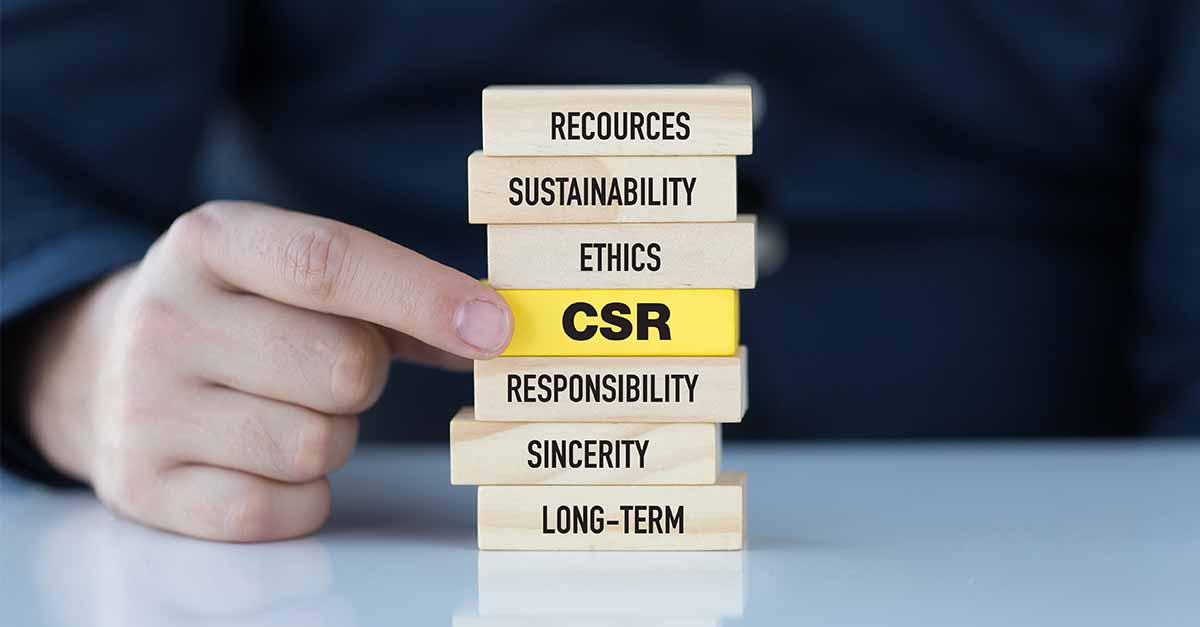It is believed that a CSR-oriented strategy not only creates a good corporate image but also brings value to a company in the form of financial benefits. However, the reasons to engage in CSR activities vary.
Some managers use CSR to satisfy the needs of different stakeholders – customers, employees, shareholders. Others perceive CSR actions as resources or capabilities that can contribute to a sustainability-driven competitive advantage. A wide variety of mechanisms such as enhanced firm reputation, increased innovation capabilities, customer loyalty and customer satisfaction could help improve financial performance.
On the other hand, CSR can be seen as an expense benefitting some stakeholders to the detriment of shareholder wealth by reducing corporate profit and stock price.
This article is based on a study using empirical data from 58 existing research studies in a meta-analysis, the goal of which is to explore whether and why expenditures on CSR activities increase profit.
What is CSR?
The term of CSR refers to certain obligations of firms to pursue or make decisions that are desirable by the interests and values of the society3. It includes different responsibilities towards community, environment, customers, and suppliers, as well as social contributions and corporate environmental ethics.
Is social responsibility beneficial?
Previous studies found that customers are willing to pay a premium price if the firm is involved in positive social performance4. Similarly, investors are more inclined to invest in firms that pursue CSR5. Findings also show that employees demonstrate a stronger commitment to a firm that has a good public image6, while some scholars found a positive relationship between stock return and the firm’s environmental performance, which includes the use of renewable energy. 
Why does corporate reputation play such a big role?
Reputation is defined as a perceptual representation of a firm’s past actions and future prospects that describe the firm’s overall appeal to its stakeholders. For the reputation enhancement mechanism to be enacted, CSR activities must target and be visible to a broader audience (society, employees, customers, environmentalists etc). Customers are more attracted to organizsations with values and norms they deem essential.
Firms that develop strong reputations create a high level of trust with their stakeholders where trust is a substitute for a governance mechanism because fewer protective tools are needed. Consequently, CSR enhances reputation of the firm and lowers transaction costs, which offers performance-related advantages.
Does CSR contribute to profitability and stock return?
To synthesise the outcome and generalise the findings of 58 studies published in high-ranked business journals, our study was conducted by using meta-analytic structural equation modelling (MASEM) – in other words, an analysis of an analysis.
The findings revealed that CSR does not directly lead to short-term profitability financial performance (profitability, sales, ROA, ROI, ROS and total assets) through enhanced corporate reputation and brand equity. However, it found that CSR improves the reputation of a firm contributing to increased stock returns and long-term financial performance.
What is the value of CSR for management?
The findings of our study have several managerial implications, which are discussed below from two perspectives: the effect of CSR on accounting-based Financial Performance and stock performance. We received a mixed set of effects that shows how complex the reality of the CSR-Financial performance relationship may be.
- Managers should continue practicing social and environmental involvement and introducing CSR initiatives as these activities lead to greater profitability, although indirectly.
- CSR initiatives must be implemented into a business strategy and communicated to the external stakeholders by changing the brand’s perception and help to reap financial benefits in the short term.
- Managers should consider CSR initiatives as antecedents to enhanced brand value and corporate reputation as both represent brand-related intangible assets and contribute to a company’s competitive advantage in a market.
References
1. Meier, S. & Cassar, L. (2018). Stop Talking About How CSR Helps Your Bottom Line. Harvard Business Review. Retrieved from https://hbr.org/2018/01/stop-talking-about-how-csr-helps-your-bottom-line
2. Tendolkar, A. (2019). More Companies Spending On CSR But Aren’t Being Generous Enough. Bloomberg Quint. Retrieved from https://www.bloombergquint.com/business/more-companies-spending-on-csr-but-arent-being-generous-enough
3. Bowen, H. (1953). Social Responsibilities of the Businessman (1st ed.). Harper, New York.
4. Bhattarcharya, C., & Sen, S. (2003). Consumer-Company Identification: A Framework for Understanding Consumers’ Relationships with Companies. Journal of Marketing, 67, 76-88.
5. Barnett, M. L., & Salomon, R. M. (2006). Beyond dichotomy: The curvilinear relationship between social responsibility and financial performance. Strategic Management Journal, 27, 1101-1122.
6. Dutton, J. E., Dukerich, J. M., & Harquail, C. V. (1994). Organizational images and member identification. Administrative Science Quarterly, 39, 239–263.

.png?width=3840&height=2560&name=Sun(1).png)

.png?width=3840&height=2560&name=Landscape_2(1).png)





